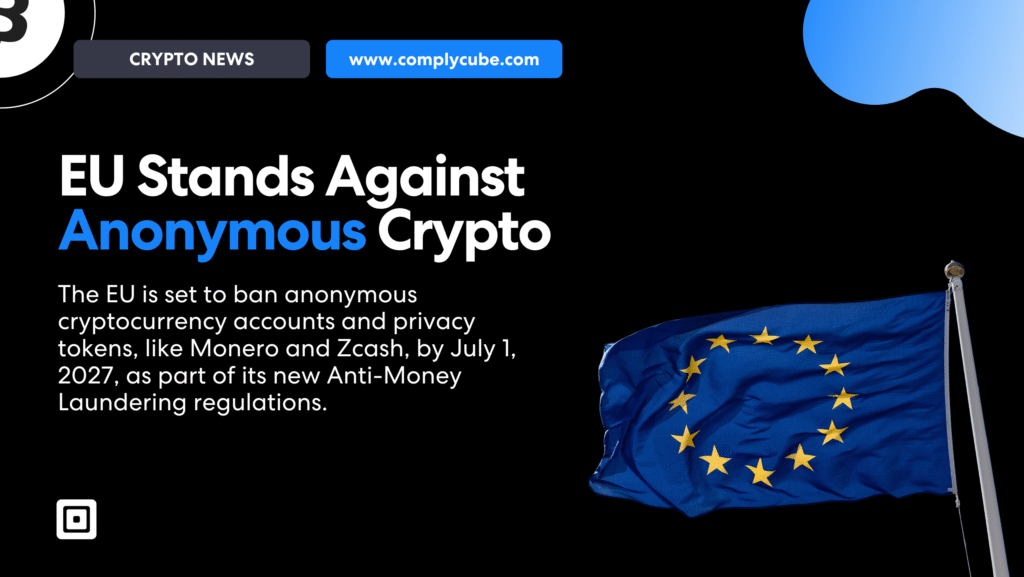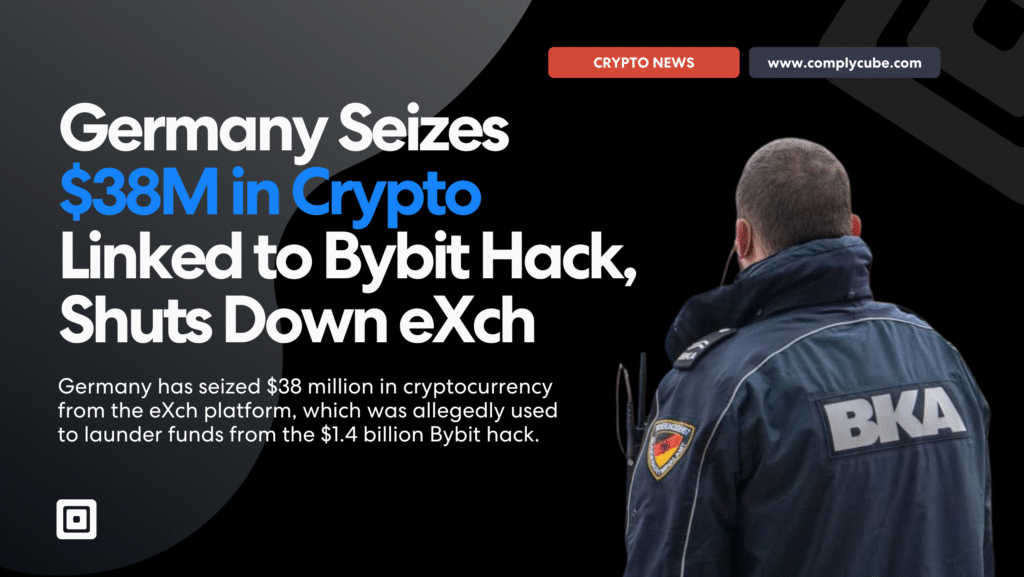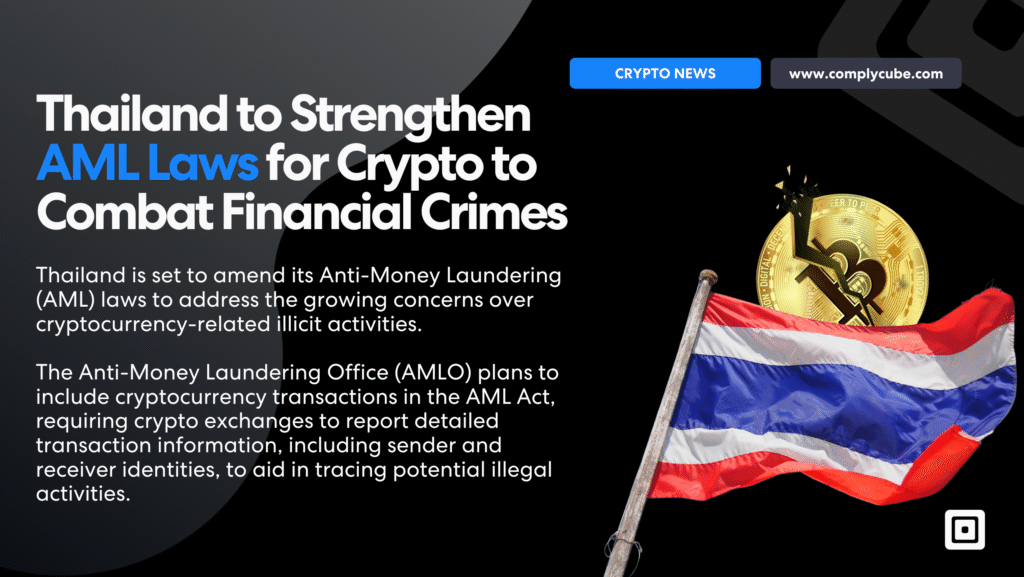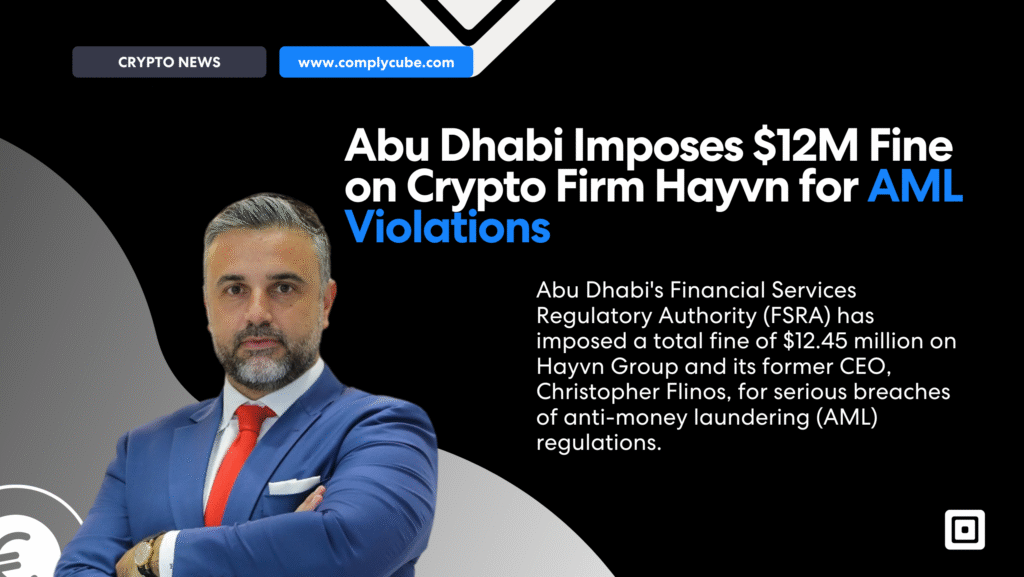👋 Welcome back to CryptoCubed!
This has been a busy month in the world of crypto, with anonymous crypto soon to be banned by the EU, AML fines being handed out left right and centre, new crypto AML laws in the works, and much more. As always, you’ll find your monthly dose of crypto poetry at the end. 😉 Welcome back to Crypto Cubed.

EU Bans Anonymous Crypto
The EU will ban anonymous crypto accounts and privacy coins, including Monero and Zcash, on or before July 1, 2027, under its new Anti-Money Laundering regulations. The rules will require crypto service providers to eliminate privacy-friendly cryptocurrencies and enhance customer due diligence for over €1,000 worth of transactions.
This action by regulators, intended to enhance financial transparency and combat illegal activity, has been met with controversy. Some say it is needed for security reasons, while others fear it destroys privacy and decentralization in cryptocurrency. Enforcement will be overseen by the European Anti-Money Laundering Authority, with direct supervision of specific crypto players beginning in 2026.
Under the new regulatory framework, Centralised Autonomous Secure Platforms (CASP) operating in at least six member states will be under direct AML supervision.

CoinTelegraph states, “Under the new regulatory framework, Centralised Autonomous Secure Platforms (CASP) operating in at least six member states will be under direct AML supervision. In the initial stage, the European Anti-Money Laundering Authority plans to select 40 entities, with at least one entity per member state, according to the European Union’s Anti-Money Laundering Handbook.”
For more on this story, click here.
Germany Seizes $38M in Crypto Tied to Bybit Hack, Shuts Down Illegal Exchange
The authorities in Germany have seized $38 million in cryptocurrency from the eXch. The platform, which is alleged to have laundered funds from the $1.4 billion Bybit hack, was utilized. The Federal Criminal Police Office (BKA) and the Frankfurt Public Prosecutor’s Office led investigation efforts. The authorities also knocked down eXch and confiscated over eight terabytes worth of data from its German server infrastructure.
eXch, which had operated since 2014, was a crypto exchange site that lacked anti-money laundering (AML) systems. Officials alleged that the site facilitated the exchange of criminal proceeds, such as some of the $1.5 billion stolen from Bybit in February 2025. The site had already transferred $1.9 billion of crypto purchases, some of which had been believed to be of criminal origin.

For more on this, click here.
Thailand to Strengthen AML Laws for Cryptocurrencies to Combat Financial Crimes
Thailand is set to amend its Anti-Money Laundering (AML) laws to address the growing concerns over cryptocurrency-related illicit activities. The Anti-Money Laundering Office (AMLO) plans to include cryptocurrency transactions in the AML Act, requiring crypto exchanges to report detailed transaction information, including sender and receiver identities, to aid in tracing potential illegal activities.
The amendments aim to bolster Thailand’s compliance with international standards, such as those set by the Financial Action Task Force (FATF), which recommends that crypto exchanges implement Know Your Customer (KYC) policies and report suspicious transactions.
While there is no current evidence of widespread money laundering involving cryptocurrencies in Thailand, AMLO officials emphasize the importance of proactive measures to prevent such activities. The proposed changes are part of a broader effort to combat cybercrime and strengthen the country’s financial regulatory framework.
The inclusion of cryptocurrency transactions in the AML Act is expected to enhance transparency and accountability in the digital asset sector, aligning Thailand with global efforts to curb financial crimes associated with cryptocurrencies.
Find more on this story here.

Abu Dhabi Imposes $12M Fine on Crypto Firm Hayvn for AML Violations
Abu Dhabi’s Financial Services Regulatory Authority (FSRA) has imposed a total fine of $12.45 million on Hayvn Group and its former CEO, Christopher Flinos, for serious breaches of anti-money laundering (AML) regulations. The violations involved operating an unlicensed special purpose vehicle, AC Holding, to process client transactions without adequate AML controls between October 2018 and May 2024.
The FSRA’s investigation revealed that Hayvn and its affiliates failed to establish proper systems to manage operations and risks, and provided over 200 falsified documents to banking partners to maintain accounts for illicit activities. Flinos, who served as CEO of Hayvn ADGM and CEO and sole director of Hayvn Cayman and AC Holding, was found to have provided false information during the investigation.
As a result, the FSRA has canceled Hayvn ADGM’s operating license and permanently banned Flinos from holding any financial services position in Abu Dhabi. The fines are distributed as follows: $3.6 million against Hayvn Cayman, $3 million against Hayvn ADGM, $1.5 million against AC Holding, and $750,000 against Flinos.
This enforcement action underscores the FSRA’s commitment to upholding regulatory standards and ensuring the integrity of the financial system in Abu Dhabi Global Market.

For more on this story, click here.
Bank of Italy Warns Crypto Could Threaten Global Financial Stability, Echoing EU Concerns
The Bank of Italy has joined European financial authorities in expressing concerns over the U.S.’s growing embrace of cryptocurrency, particularly following the recent presidential election. The central bank highlighted the potential risks to global financial stability, especially regarding the rise of U.S. dollar-pegged stablecoins like Tether and USDC.
The Bank of Italy’s report indicates that the post-election crypto boom in the U.S. led to a temporary surge in global crypto market values. However, the central bank warns that if crypto markets, especially volatile assets like Bitcoin, become more integrated with traditional finance, it could expose global markets and intermediaries to significant vulnerabilities.
The report also raises concerns about the growing systemic relevance of U.S. dollar-pegged stablecoins. If these stablecoins attain systemic significance, it could generate exceptional demand for U.S. government bonds, potentially leading to forced sales of reserves in the event of issuer failures. Additionally, the introduction of euro-denominated stablecoins by U.S. firms could undermine local payment systems and weaken Europe’s monetary sovereignty.
In response to these concerns, the Bank of Italy is aligning with the European Central Bank’s push for a digital euro to protect monetary sovereignty and reduce reliance on foreign stablecoins. The central bank is also preparing guidelines to apply European Union rules on crypto assets, focusing on preserving the regular functioning of the payment system and safeguarding consumer protection.

This development underscores the growing apprehension among European regulators about the potential implications of the U.S.’s pro-crypto stance on global financial stability and the need for coordinated international regulatory efforts
For more on this story, click here.
Time for Some Light-Hearted Creative Criticism?
So you’ve made it to the end of our newsletter. It’s time to enjoy a little satire, worthy reader, you’ve earned it.
🔥THE CRYPTO CUBED POEM: MAY🔥
It’s looking like anonymous crypto in the EU will be banned,
Why they are waiting until 2027… I don’t quite understand,
The Bank of Italy strongly agrees with the EU’s crypto fears,
But hey, why the rush? They’ll deal with it in a couple years.
If you’re an AML-lacking CEO, this rhyme is just for you,
I think you’re in a pretty bad position if your enemy is the EU.
Yes, ok, they might take a couple years and several lengthly negotiations.
But you can bet your bottom dollar they’ll hand your ass back to you with a side of eggs and bacon.
Stay tuned for our June newsletter, and have a great month!




